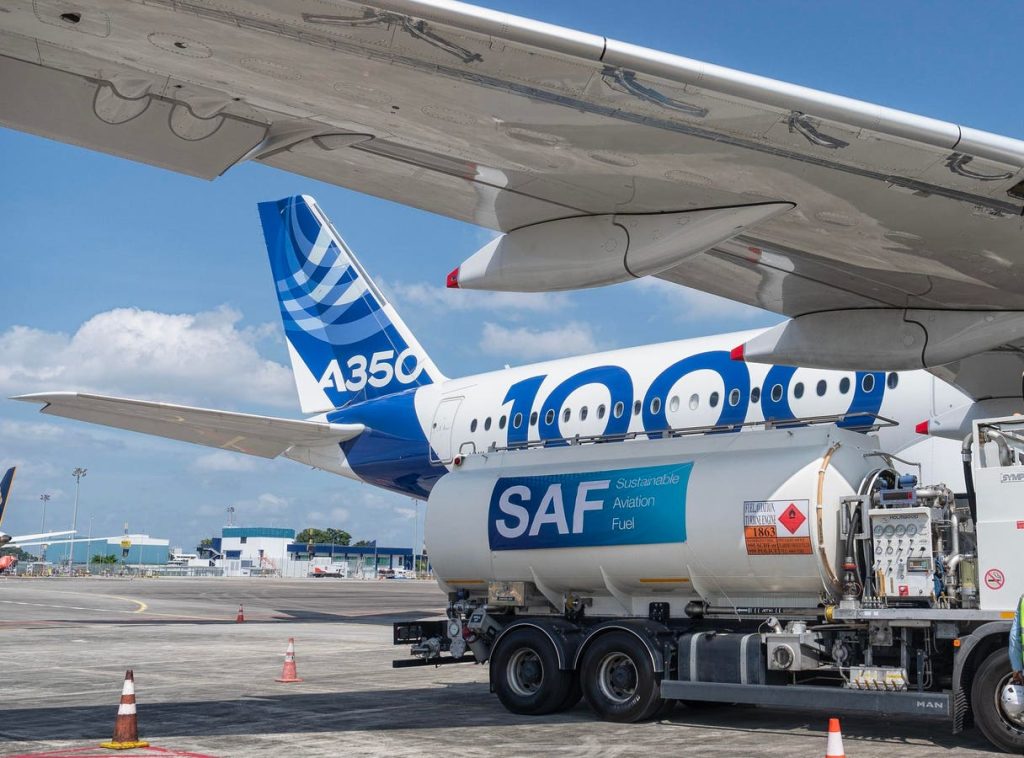Airbus, a global aircraft manufacturing giant, and OMV, an Austrian integrated energy company, have forged a strategic partnership to accelerate the adoption of sustainable aviation fuel (SAF) and drive the decarbonization of the aviation industry. This collaboration aims to address the complex challenges hindering the widespread use of SAF, including high production costs, limited supply, and the need for significant investment in new production facilities. By combining their respective expertise, Airbus and OMV intend to stimulate demand, support large-scale SAF production, and promote a more sustainable future for air travel.
A key driver for this partnership is the European Union’s ambitious target of achieving a 70% SAF usage rate by 2050. While airlines have expressed willingness to meet this target, the high cost of SAF, typically three to five times that of conventional jet fuel, poses a significant barrier. The limited availability of SAF, currently accounting for less than 0.5% of global jet fuel consumption, further complicates the transition. This scarcity creates uncertainty for manufacturers, who are hesitant to invest heavily in new production facilities without a guaranteed market. The Airbus-OMV partnership seeks to address these challenges by fostering greater demand for SAF, thereby encouraging the necessary investments in production infrastructure.
The collaboration will focus on several key areas. OMV, which has been producing SAF at its Schwechat refinery in Austria since 2022, will leverage its existing production capabilities and expertise in sustainable feedstocks. Airbus, with its extensive network and influence within the aviation industry, will play a crucial role in promoting the adoption of SAF among airlines and other stakeholders. Jointly, they will explore innovative solutions to broaden access to SAF for various customer groups, stimulating demand and supporting the development of new production facilities.
A crucial aspect of this partnership is the commitment to research and development. Airbus and OMV will collaborate on accelerating the testing, evaluation, and approval of new feedstocks and production pathways, aiming to increase the availability of SAF and potentially reduce production costs. This collaborative approach to innovation will be essential for overcoming the technological and logistical hurdles that currently limit SAF production. Furthermore, the partnership will address the critical need for greater awareness and understanding of SAF within the industry and among the public.
The partners recognize the importance of regulatory support in facilitating the transition to renewable fuels. They will actively engage with policymakers to advocate for policies that incentivize SAF production and usage, creating a favorable environment for investment and innovation. By fostering a closer relationship between industry and government, Airbus and OMV aim to accelerate the development of a robust and sustainable SAF market.
This strategic partnership between Airbus and OMV signals a significant step towards a greener future for aviation. By combining their strengths and resources, the two companies aim to overcome the challenges hindering the widespread adoption of SAF, paving the way for a more sustainable and environmentally responsible air travel industry. The collaboration’s focus on stimulating demand, supporting large-scale production, and fostering innovation holds the potential to significantly accelerate the decarbonization of aviation and contribute to the global effort to mitigate climate change. The success of this partnership will hinge on the collaborative efforts of industry stakeholders, policymakers, and researchers working together to create a thriving SAF ecosystem.
Both OMV and Airbus emphasize the transformative potential of their partnership. Martijn van Koten, Executive Vice President of Fuels and Feedstock at OMV, highlighted the need for such collaborations across the aviation value chain to build a robust SAF industry. He emphasized OMV’s commitment to sustainability and its role in driving the transition to a more environmentally friendly future for aviation. Julie Kitcher, Chief Sustainability Officer at Airbus, echoed this sentiment, emphasizing the importance of cross-industry collaboration in achieving a net-zero aviation sector. The shared vision and commitment of both companies underscore the significance of this partnership in shaping the future of sustainable flying. Their joint efforts will be instrumental in overcoming the challenges and realizing the full potential of SAF as a key driver of decarbonization in the aviation industry. The partnership serves as a model for collaborative efforts needed across various sectors to address the complex challenges of climate change and transition towards a more sustainable future.

